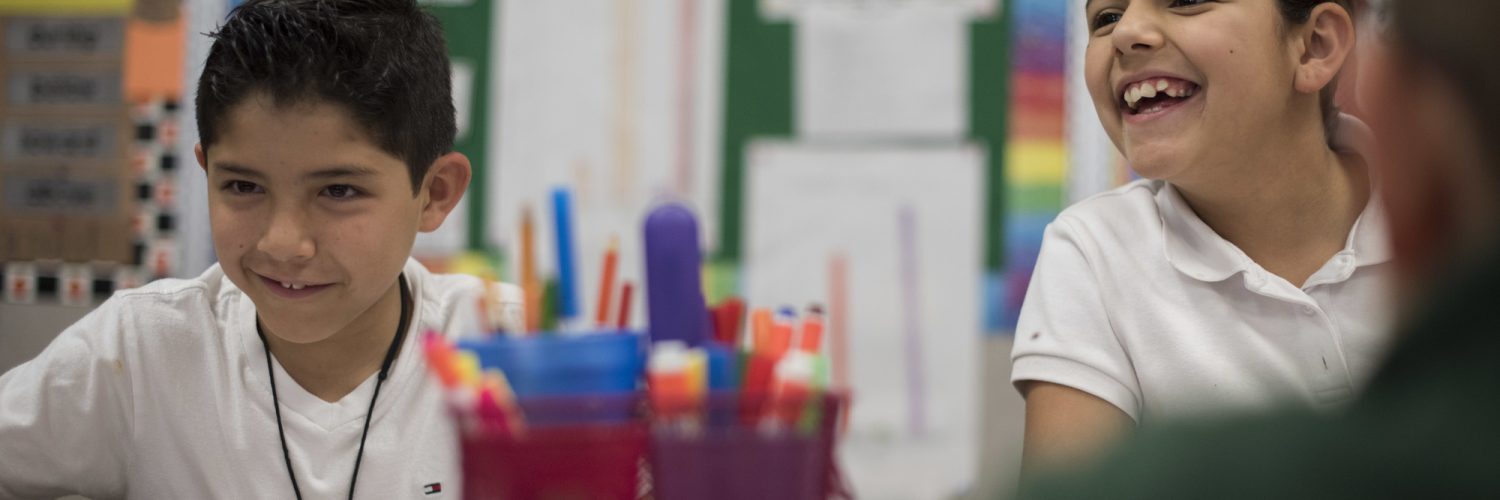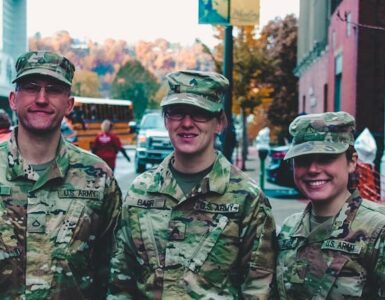Steps of Love, an Arizona-based nonprofit, has partnered with AIM Peñasco, a civil association in Puerto Peñasco, Mexico, to expand educational opportunities and break down barriers to access by offering tutoring, transportation, health care assistance and more.
“The growth of our program has been purely word-of-mouth,” said Claire Bashaw, executive director of Steps of Love. “We have established some really good credibility in the community, basically families who are really having trouble meeting their kids’ and their family’s needs.”
Bashaw runs the operation stateside, but she credits one Kathleen Duncan with the success of the organization’s pilot program in Puerto Peñasco, known to many as Rocky Point.
“[Kathleen] and her husband own and operate Duncan Family Farms, which is one of the largest organic baby greens farms in the nation,” Bashaw said. “When the farm really took off, she found herself of means for the first time in her life, and she was a new empty nester, and she had been vacationing in Rocky Point for many years.”
Duncan spent the next three years — from September 2012 to November 2015 — volunteering three days a week at an emergency children’s shelter in Puerto Peñasco. During that time, she met Bashaw.
“I had become part of Steps of Love; it was a brand new, very small nonprofit that… a woman I had met had formed just to support a little children’s home in Sonoita, on the border… caring for like six kids,” Duncan recalled.
The two decided their efforts would be better spent if they worked together, and they put a plan into action.
“I was ready, after three years going back and forth, to go out… and really launch an effort, launch a program to help kids out in the community, not just at this little shelter,” Duncan said. “I formed a local advisory group when I formed the civil association, and they have really guided this.”
A civil association is essentially the Mexican term for a nonprofit organization.
Duncan said she saw the poverty present in Puerto Peñasco and realized that, although many nonprofits and aid organizations were helping families get access to shelter, food and health care, one issue was not being addressed — education.
“So many families are being forced to choose between sending their kids to school and meeting their basic needs,” Duncan explained.
The Mexican constitution guarantees a free public education until high school, but, as Duncan put it, “Free does not mean accessible.”
“You can have a free grade school right down the street from you, but if you don’t have a birth certificate, because you were born in poverty and not in a hospital… you don’t exist in the government; you can’t register for school,” she said. “You don’t exist as far as the government’s concerned.”
Money is a barrier to many children being prepared for school. Just like in the United States, students need to bring backpacks with notebooks, glue sticks and other everyday school supplies.
“Some kids just have to work,” Duncan said. “They have to be out on the streets, hustling, washing windows, selling gum on the corners with their parents, just contributing to the family income.”
For kids in those situations school is often not an option, and even kids who can make it to school most days sometimes fall behind, which can mean expulsion.
What is the solution? For Steps of Love, education must be approached holistically.
At its start, the organization had limited resources that became stretched thin as their student population grew, so in the second year they opened two homework clubs in the community. The clubs function like Boys and Girls Clubs in the U.S., where kids can come study, receive tutoring and be safe from outside dangers.
“We have a whole team,” Bashaw said. “We’ve got a social worker, we’ve got a community outreach person, we’ve got several administrative employees. The families’ needs are assessed… some families need just a little, some families need a lot.”
If the children are hungry, Steps of Love provides food vouchers; if the family can’t afford cab fare — there is no public transportation — the organization offers vouchers; if families can’t afford school supplies, Steps of Love provides those, too.
“We’ve partnered with dentists and doctors who now see our kids for free,” Bashaw said.
Whatever barriers are preventing families from providing their children with education, that is what Steps of Love and AIM Peñasco want to fix, she said.
Bashaw said the program grew from 72 kids the first year to 588 the third year. The first round of 19 high school seniors graduated high school, and all 19 of them started college in the fall. There are now four homework clubs in the community, and the program has at least a 98 percent retention rate, Duncan said.
Bashaw and Duncan both agree, the community itself is key to the success of the program.
“While we are funding this program in Mexico, we are still empowering that local team to empower their own community,” Bashaw said. “We’re allowing them to drive the programmatic development — for them to understand what it is that their own community needs. And by offering educational access and academic resources to these kids, we’re allowing them to break their family’s cycle of poverty.”
Running a program like this is not cheap, but it is far from impossible, Duncan said.
The first year’s budget was $30,000, and Duncan and her husband funded it themselves. This year, the budget was about $250,000.
“We never imagined it would blow up as it has and the need would be so great, and we’d have this huge waiting list, but we have rapidly outgrown my ability — and my husband’s ability — to kind of do this privately, and for me to lead our efforts on both sides of the border,” Duncan said.
That’s how Bashaw came to be executive director of Steps of Love, giving Duncan a chance to step back from her hands-on role.
According to Steps of Love, it costs about $34.80 per month to support one child in the program. That funds the homework clubs, the team’s salaries, direct educational expenses, transportation and other support.
“In that community, that’s a lot of money,” Duncan said. “But for here? You know, to change a kid’s life, give them a different future for $35 a month?”
Duncan said the families in Puerto Peñasco told her education brings them hope because education provides a future for their children.
“Kathleen always says that… you could be the richest person or the poorest person, but in the end, what you want for your child is a better life,” Bashaw said. “And these kids struggle so much because of the lack of resources and support, and they are faced with insurmountable barriers in their lives.”
Steps of Love has entrusted the local team in Puerto Peñasco to run AIM Peñasco day to day. The way Bashaw and Duncan see it, the community members have to be the ones championing the effort to educate their children.
To participate in the program, every family has to find a way to give back.
“Nobody wants to just take and wait for somebody to take care of them,” Duncan said. “Some of our families have so little in terms of resources, but everybody has things to give: their time — we have dads that will help fix roofs on other kids’ houses; a dad that’s a welder… a mom that can sew and sews other kids’ uniforms; someone that makes tortillas; some that have cars will give transportation to those that don’t.”
The students give back to the community, too. Older kids tutor the younger, and the program has hired two of its own college graduates to teach after helping them earn their teaching certificates.
“I always say, I truly believe that every human being should have the right and privilege and opportunity to get the best education possible,” Duncan said. “And to know that, three-and-a-half hours away, these kids are not getting a chance or any kind of hope for a better life… How can you not do whatever you can to change that?”
Steps of Love has high hopes for the future of its program. Duncan said she hopes to offer vocational education to adults who want to find a career, and intensive English language courses to help children broaden their opportunities.
Bashaw said it is important to give the children of Puerto Peñasco what they truly deserve.
“If we just give them the chance to learn, they will be that much less likely to be in a desperate situation — to find themselves needing to cross the border or find work elsewhere,” Bashaw said. “We are letting their own community empower themselves… we have taken it upon ourselves to help our neighbor.”
















Add comment